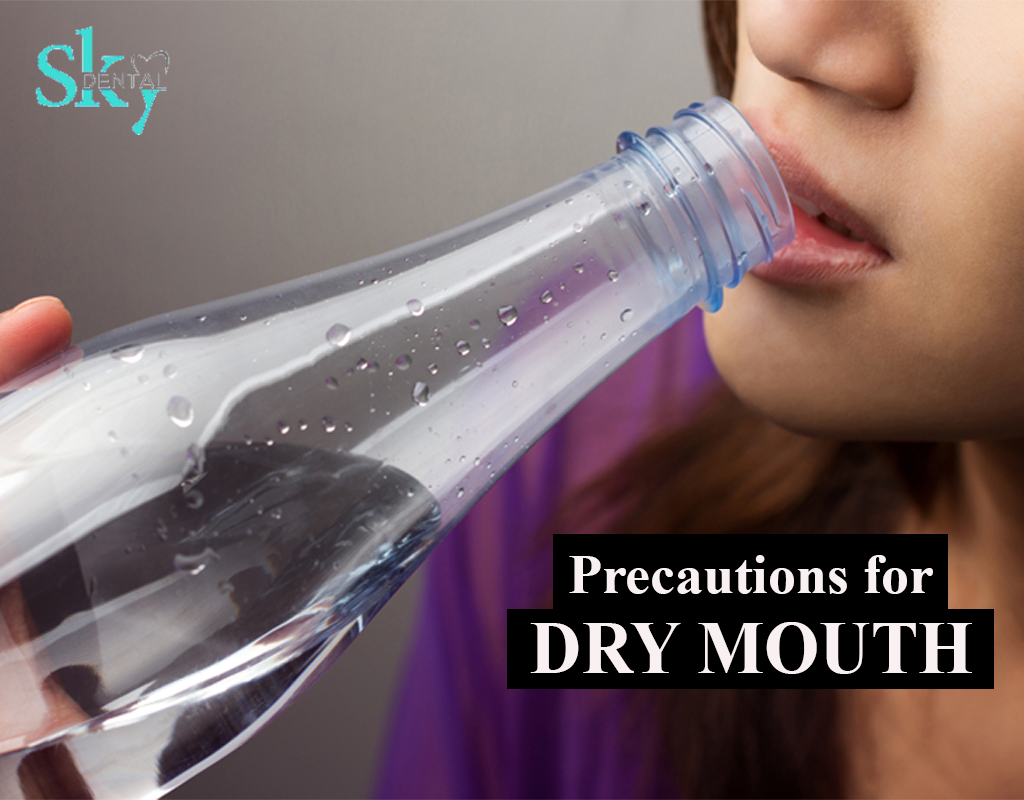Xerostomia, a synonym for Dry mouth is a result of inadequate flow of Saliva in the mouth. Saliva is a primary thing which moistens and clean our mouth. It digests food and also prevents infection by controlling bacteria and fungi in the mouth.
Saliva helps in preventing tooth decay by neutralizing acids and limiting bacterial growth. It is the mouth’s primary defence against the tooth decay and also enhances your ability to taste. Xerostomia is also a result of medications or ageing issues.
Few common problems that are associated with the dry mouth are sore throat, burning sensation, difficulty in swallowing, trouble speaking and hoarseness. In some cases, it may also an indicator of chronic autoimmune disorder. This is a type of disease in which the body’s immune system suddenly attacks its own moisture-producing glands and salivary glands. Extensive tooth decay can also occur without saliva. Visit the dental hospital, so your dentist may recommend various methods to restore moisture.
Causes for Dry mouth
Without enough saliva, the glands may not work properly resulting in
- Diseases and Infections
Dry mouth can be caused due to the side effect of medical conditions including HIV, diabetes. And also anaemia, hypertension, cystic fibrosis, Parkinson’s disease, stroke and mumps.
- Medications
Usage of the drugs for depression, anxiety and high blood pressure. Medications of allergies, obesity, nausea, hypertension, psychotic disorders, urinary incontinence, and asthma may also cause Dry mouth.
- Ageing
As age increases, many people experience dry mouth. Factors due to age may include the use of particular medications. Modifications in the body’s ability to process medication, inadequate nutrition and health problems.
- Dehydration
Dehydration is the major cause of Xerostomia. And it causes due to fever, excessive sweating, diarrhoea, vomiting, blood loss and burns.
- Nerve damage
The damage of nerve to the head and neck area from an injury or surgery can cause Xerostomia.
- Tobacco and alcohol
Smoking or chewing tobacco and drinking alcohol can increase dry mouth symptoms.
Dry mouth symptoms
Lack of Saliva may notice these signs and symptoms.
- Stickiness or a dry feeling in the mouth
- Frequent thirst and dry feeling in the throat
- Difficulty in chewing and swallowing
- The problem in speaking or trouble tasting
- Bad breath
- Hoarseness and sore throat
These are some of the tips that help you get awareness about oral health and how to maintain it. The main objective of this article is to promote knowledge about general oral health topics. This information is not intended to replace any professional advice or treatment. Consult your dentist or dental hospital and seek the advice before you undergo any treatment


